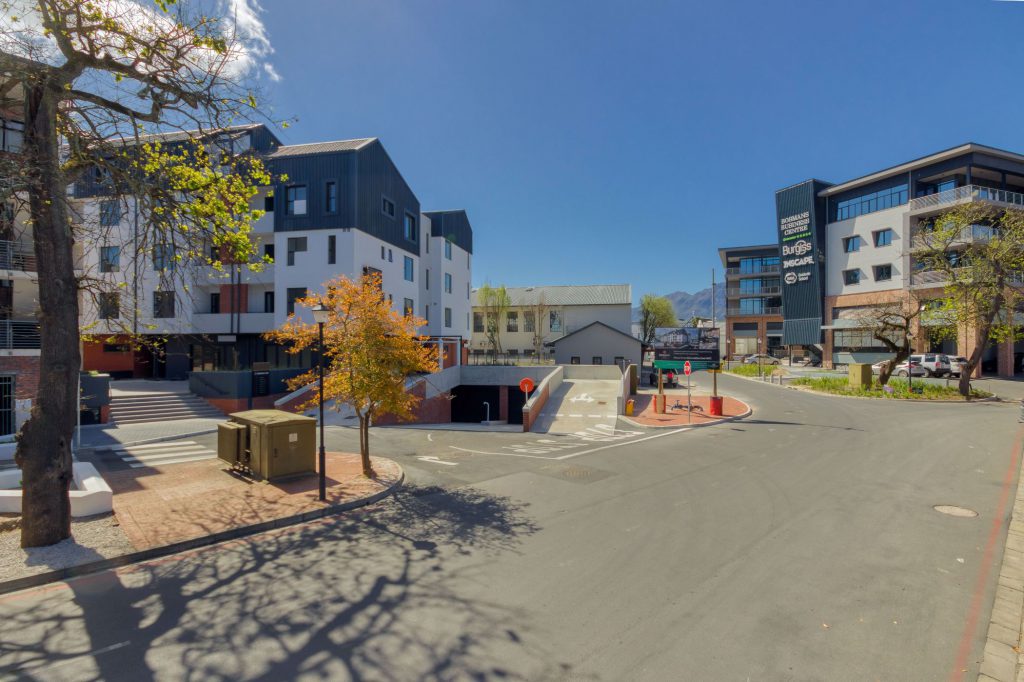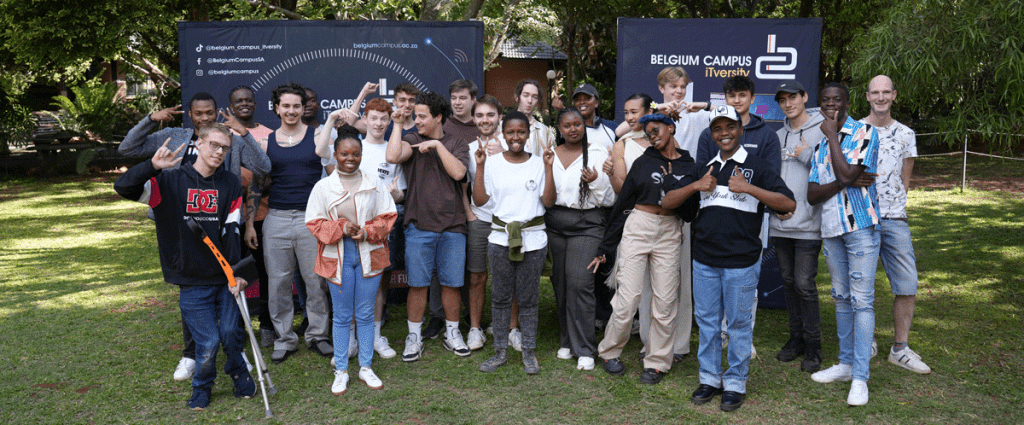Study IT In Stellenbosch
The crowd spoke, and we listened. Belgium Campus iTversity is bringing its world-class IT qualifications to Stellenbosch. With two campuses in Gauteng, in Pretoria and Kempton Park, we thought it only fair that we also give Western Cape residents the opportunity to graduate as sought-after professionals in the fastest-growing industry on earth. With this in mind, all that’s left to ask is: Western Cape, are you ready for your digital revolution? What You Can Study Choose between two exceptional qualifications that include workplace training at a leading organisation. What Sets Our Courses Apart 1) They are regularly updated to meet the changing needs of the industry. We collaborate with over 140 local and global businesses to stay up to date with technological advances and the changing skills and profiles required in the workplace. 2) They have international recognition. Our courses are benchmarked against the accreditation protocol of the Dutch and Flemish Accreditation Organisation every 5 years. The latest audit found our Bachelor of Computing degree even more advanced than an academic bachelor’s programme of European standards! Regardless of the qualification you choose, you can rest assured that you will graduate in demand with plenty of exciting job opportunities. Why Study in Stellenbosch Not a Stellenbosch resident? You may want to consider relocating to pursue higher education. Why? Aside from the obvious, being Belgium Campus coming to town, there are many other reasons Stellenbosch is a great place to study. Here are our top 4 in no particular order: 1) It’s beautiful! Surrounded by stunning mountains and famous vineyards, Stellenbosch is definitely one of the most picturesque parts of South Africa. The small town also boasts historic architecture and quaint oak-lined streets. 2) There’s plenty to do. Leading on from point one, the backdrop Stellenbosch provides enhances any activity! Some local favourites include wine tasting, hiking, and enjoying some water sports at one of the nearby beaches. And if by some miracle you find yourself wanting, the metropolitan city of Cape Town is a mere 50-minute drive. 3) It’s a university town. University towns are known for their vibrancy and diversity, and Stellenbosch is no different. With a population dominated by energetic youth from all over the world, there is nothing quite like pursuing your studies in this melting pot. 4) It has a rich cultural heritage. As South Africa’s second-oldest town, Stellenbosch has a rich cultural heritage for students to explore, including Cape Dutch architecture dating back to the 18th century. 1. It’s beautiful! Surrounded by stunning mountains and famous vineyards, Stellenbosch is definitely one of the most picturesque parts of South Africa. The small town also boasts historic architecture and quaint oak-lined streets. 2. There’s plenty to do. Leading on from point one, the backdrop Stellenbosch provides enhances any activity! Some local favourites include wine tasting, hiking, and enjoying some water sports at one of the nearby beaches. And if by some miracle you find yourself wanting, the metropolitan city of Cape Town is a mere 50-minute drive. 3. It’s a university town. University towns are known for their vibrancy and diversity, and Stellenbosch is no different. With a population dominated by energetic youth from all over the world, there is nothing quite like pursuing your studies in this melting pot. 4. It has a rich cultural heritage. As South Africa’s second-oldest town, Stellenbosch has a rich cultural heritage for students to explore, including Cape Dutch architecture dating back to the 18th century. A Perfectly Located Campus with Top-Notch Facilities Belgium Campus iTversity will form part of the UXI EduHub, located in Stellenbosch Central at 10 Distillery Rd, along with IMM, Open Window, and UXI Sport. This prime location provides easy access to: Planned Facilities Looking for a premium on-campus experience? We have a number of top-notch facilities in the works for you to enjoy, including: A Student Village An atrium Boardrooms An IoT workshop A library A study space A canteen Need More Information? Would you like more information about our Stellenbosch campus or the qualifications offered there? Send us an email at [email protected] or give us a call on 010 593 5368, and we will happily answer all your questions. -Louise Fuller
Study IT In Stellenbosch Read More »











